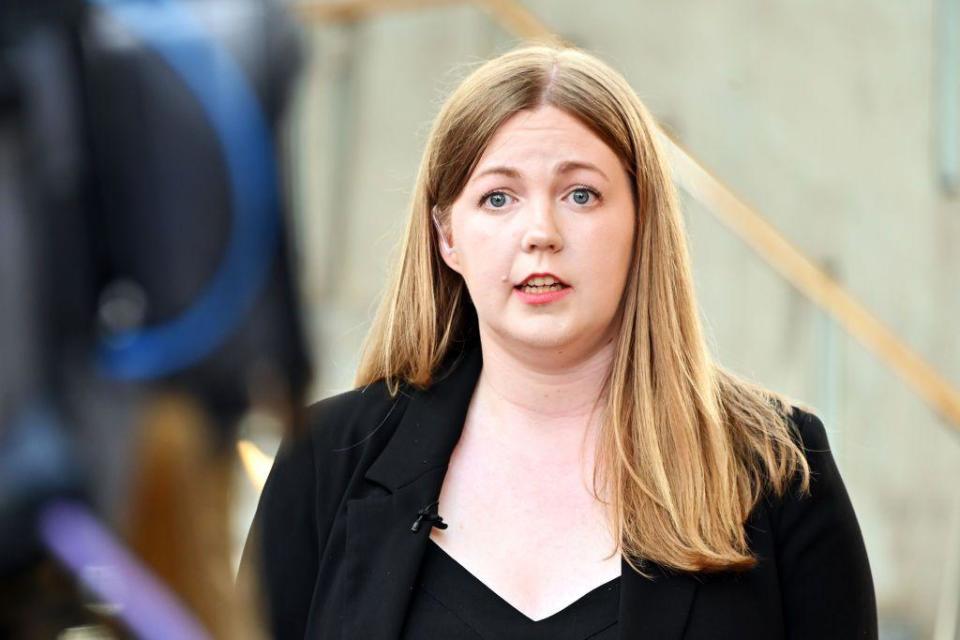Abortion clinic buffer zone law backed by MSP group
- Oops!Something went wrong.Please try again later.
A proposed law to ban protests outside abortion clinics is necessary to ensure women are free of intimidation, a Holyrood committee has said.
Green Party MSP Gillian Mackay last year introduced a member's bill at the Scottish Parliament that would block any protests taking place within 200m (656ft) of clinics.
The Queen Elizabeth University Hospital (QEUH) in Glasgow has been one of several sites targeted by the 40 Days for Life pro-life group.
Ms Mackay has said the protests amounted to "targeted intimidation" of women who were getting an abortion.
The Health, Social Care and Sport Committee has now unanimously agreed to the general principles of her Abortion Services (Safe Access Zones) Bill.
The bill proposes pro-life campaigners be fined if they encroach on the 200m zone - with unlimited fines for serious breaches.
A report published by the committee said it had considered "the conflicting human rights arguments" relevant to the bill.
But it concluded they were "proportionate" to the legislation's aims of ensuring that women were able to safely access healthcare.
Scotland's Health Secretary Neil Gray has previously said a law on buffer zones is needed "quickly".
He described protests from anti-abortion groups outside medical facilities as "unacceptable".
Silent prayers
Committee MSPs acknowledged the concerns raised by opponents of the bill who said the proposals threatened their freedom to express their views in public spaces.
MSPs also questioned why the bill proposes a 200m safe access zone, instead of the 150m recommended by experts.
An exception would be the Queen Elizabeth University Hospital, which might need the radius extended due to its layout.
During the evidence-gathering process, the committee heard concerns that police may find it difficult to determine whether the law had been breached by those undertaking silent prayers.
The report states that committee MSPs had a "difference of views" over the issue of silent prayers, with some suggesting it should be an explicit exemption to avoid the "criminalisation of private thoughts".
Meanwhile, others said silent prayers "can still be intimidating" to those seeking abortion services. The committee therefore recommended that the issue is discussed further at stage two.

MSPs also heard from doctors working at facilities offering abortion services, who raised concerns that protests outside premises could result in patients delaying or not accessing treatment.
Women who had used the services also reported anxiety.
The bill will now proceed through the Scottish Parliament to be voted on at stage one.
Committee convener Clare Haughey said the cross-party group of MSPs was united in backing the bill.
'Appropriate balance'
"We recognise the strong views it has generated and that not all are in favour of its introduction," she said.
"But ultimately we believe the creation of safe access zones around abortion services is necessary to enforce the principle that everyone should be able to access healthcare free from intimidation or harassment.
"We understand there are competing human rights at play, but we have concluded this bill strikes an appropriate balance.
"We held extensive discussions on the issue of silent prayer and while some members felt this should be exempt from the provisions in this bill, other members felt an exemption would fundamentally undermine its purpose and that silent prayer can be intimidating to those accessing services.
"This will need further consideration if the bill proceeds to stage two."
